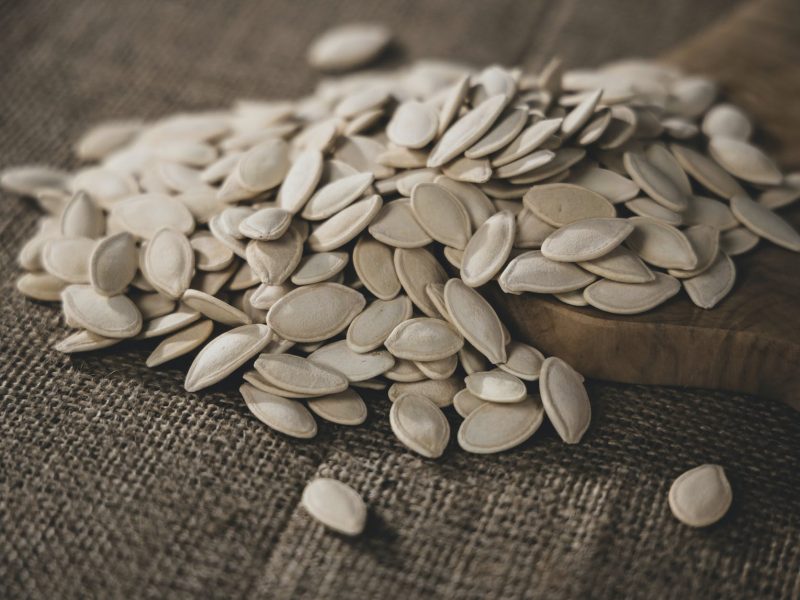Are you eating enough protein?
It can be easy to overlook the foundational role that dietary protein plays in our overall health. Particularly for those living with histamine intolerance.
Why?
Because too often than not, the focus is on the histamine content of foods, rather than on the content of protein in the day. Plus low histamine plans can be restrictive. Yet, it is still so important to ensure that you are eating enough protein.
In this blog, we answer the question, “Are you eating enough protein?”. We also look at the reasons why protein is so important, particularly for women and histamine intolerance. How protein helps with many processes in the body and low histamine sources of protein for you to include in your day.
What is Protein?
Proteins are the building blocks in our bodies, doing an important job to keep us alive and well. Imagine them as long chains made up of smaller parts called amino acids. These amino acids link together in a specific order to create different types of proteins. There are 20 different amino acids, and they can be mixed and matched to form a whole bunch of proteins.
Why is protein so important in the body?
Here are some of the ways in which protein is so important:
Protein and Muscle Health:
One of the key roles of protein is its contribution to muscle health. For women, the significance of maintaining muscle health extends beyond just appearance. It’s also linked to functional strength and resilience. Adequate protein intake serves as a foundation for the growth and repair of muscles. Making it an essential component for women navigating the demands of daily life. Whether striving to stay active, recover from illnesses, or simply cope with the challenges that come their way, women benefit significantly from ensuring their muscles receive the support they need through sufficient protein intake.
Proteins, with their amino acid building blocks, act as the repair crew for muscles, especially crucial during periods of physical exertion or recovery. As women age, preserving muscle mass becomes increasingly vital, contributing not only to physical strength but also to overall well-being.
Recovery from surgery and illness:
Protein is particularly important during the recovery process from surgery and illness. When our bodies undergo surgery or experience illness, there is often a heightened need for tissue repair and immune system support. Protein plays a crucial role in these processes as it provides the necessary amino acids for rebuilding and healing. Adequate protein intake can help:
- speed up recovery
- reduce the risk of complications
- support overall rehabilitation.
Whether it’s repairing surgical incisions, rebuilding muscle strength, repairing leaky gut, or supporting the immune system to fight off infections, protein serves as a fundamental component in the recovery journey. Contributing to the restoration of health and well-being. Therefore, ensuring a sufficient intake of protein-rich foods during recovery is essential for supporting the body’s healing processes.
Immune System Support:
Proteins play a pivotal role in fortifying the immune system by contributing to the formation of antibodies and immune cells. Antibodies, composed of amino acids derived from protein, act as the body’s defence mechanism against harmful invaders. Additionally, proteins are integral to the production of immune cells, such as T cells and B cells, which orchestrate the body’s immune responses.
Cancer and Protein:
Navigating the complexities of cancer treatment requires a holistic approach. Protein plays a crucial role in supporting cancer patients both during and after treatment. Adequate protein intake is essential for preserving muscle mass, a common concern as cancer and its treatments can contribute to muscle wasting and fatigue.
Also, during cancer treatment, the body may undergo significant stress, and protein becomes a vital component for tissue repair and recovery. Moreover, protein is indispensable for maintaining a strong immune system, which is often compromised during cancer therapies. A robust immune response is essential for the body to fend off infections and aid in the healing process.
Post-treatment, protein continues to be a key player in the recovery phase. Because it supports the rebuilding of tissues, aids in regaining strength, and contributes to overall well-being. For cancer survivors, ensuring an adequate protein intake is a part of the broader journey towards rebuilding health and resilience.
Longevity and Protein:
The role of protein emerges as a critical factor in promoting longevity. Protein is not merely a nutrient for muscle building; it plays a multifaceted role in supporting overall health and vitality.
Maintaining muscle mass is a key aspect of aging gracefully, and protein is a fundamental component of this. Adequate protein intake helps counteract age-related muscle loss, preserving strength and functionality. Additionally, protein supports bone health, preventing frailty and reducing the risk of fractures, and osteoporosis – common concerns as we age.
Other roles of Protein:
Protein impacts metabolic health and weight management. A protein-rich diet:
– Promotes satiety
– Aids in weight control
– Reduces the risk of obesity-related conditions
– Fosters a healthy metabolism crucial for longevity.
Furthermore, protein contributes to the production of enzymes and hormones, supporting various biochemical processes in the body.
Signs of Protein Deficiency:
How do you know if you’re not getting enough protein? Common signs of protein deficiency include:
– muscle weakness
– fatigue
– slow recovery from injuries
– even changes in hair and skin health.
Understanding these signs can help you assess whether your current protein intake aligns with your body’s needs.
Are you eating enough Protein?
I frequently get asked, “How much protein do I need in a day?”
The answer is; that it depends on a number of factors. Age, current body composition, exercise levels and also your specific goals.
As a general guideline, the calculation is 1.5g protein per kg of body weight. (1.5g/kg/bw).
For example, if you weigh 65kg then the recommended daily intake of protein is 97.5g of protein a day.
This may be higher if you are performing high amounts of physical activity. Most people unless they are conscious of this amount, do not eat enough protein. In the next section, we discuss protein sources that are also low histamine so that you can still hit these recommendations whilst on a low histamine plan.
Protein Sources for All Lifestyles:
While protein is crucial, it’s important to be aware of histamine levels in various protein sources, especially for those with histamine intolerance.
Firstly, some foods are high in histamine.
Secondly, fresh is best. The longer foods sit around on the beach or in the fridge, the higher the histamine levels.
Sources of Dietary Protein that are also low in histamine:
Let’s take a look at both the animal sources and plant sources of protein that are also low in histamine:
Animal Sources of Low Histamine Protien:
- Egg well-cooked or cooked into baked goods.
- Lamb all cuts and goat unaged
- Chicken
- Goose (skinless)
- Rabbit
- Veal
- Lard
- Quail
- Beef or Bison – fresh unaged. Ask your butcher how long items have been aged. Ask to grind the mince in the store or mince yourself. Shoulder cuts and diced beef and joints are usually fresh, check with your butcher.
- Oysters – live and freshly shucked – be careful with this one shellfish that are not live and cooked immediately will be high in histamine. Avoid anything that has been sitting around.
- Fish – if eaten within a few hours of catch or frozen straight after catch. Most fish that is fresh in supermarkets or fishmongers are high in histamine as its been sitting around for a while. Find wild-caught and frozen if you can. Some species of fish are high in histamine – learn more in the free histamine food guide.
Note: All cuts of meat need to be fresh, look for the best before date, or ask your butcher for the freshest cut of meat. All meat increases in histamine if not fresh even the low histamine meats, you can join the Kickstart course to learn all the details about how to cook, eat and store low histamine!
One of the favourite protein recipes I’ve shared is the Greek Lamb Patties. Low Histamine and super yummy!
Plant Sources of Low Histamine Protein:
- Green peas
- Quinoa
- Macadamia nuts
- Flax seeds
- Hemp seeds
- Hemp protein powder
- Poppy seeds
- Psyllium
- Caraway seeds
- Tiger nut (a root vegetable)
- Chia seeds
- Pumpkin seeds
- Nigella (black cumin)
- Pistachio
- Brazil nut
- Young fresh coconut
- Dried or desiccated coconut and flour
- Coconut milk or cream
- Pecan
- Oats
- Chickpeas and lentils
Note: some of these only contain small amounts of protein.
To read more about high histamine foods so you can understand which ones to avoid, this blog is the top 10 high histamine foods.
Meeting your protein needs doesn’t have to be complicated. Simple adjustments, such as incorporating protein-rich food sources into your meals, planning ahead and exploring new low histamine, high-protein recipes, can make a significant difference. Ensure alongside your protein you’re also getting a lot of vegetables to have a balanced and healthy diet.
In summary, this blog emphasizes the often-overlooked importance of protein, particularly for those with histamine intolerance. Encouraging you to ask the question, Are you eating enough protein? It explores its crucial roles in muscle health, recovery from surgery and illness, immune system support, and longevity particularly for women.

Do you want to learn how to eat an anti-inflammatory, gut-healing, low-histamine diet the right way?
With easy recipes, meal plans, handouts, and everything you need in a self-paced course – start the Easy Low Histamine Diet Kickstart course today.
Reduce your symptoms with delicious food and eat with ease.

 The Pregnenolone Steal
The Pregnenolone Steal